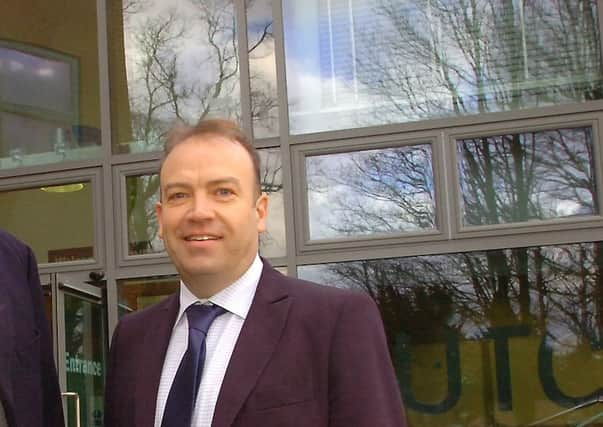Daventry's MP leads debate on VAT fraud among online retailers


On Thursday Chris Heaton-Harris led the Westminster Hall debate on VAT evasion and internet retailers.
The debate was centred on VAT fraud among foreign firms selling items to UK consumers online through sites like Amazon and eBay.
Advertisement
Hide AdAdvertisement
Hide AdMr Heaton-Harris said there was strong evidence some firms, many based out of China, were not only breaking UK laws on VAT, but were also misleading customers into thinking they were in compliance with the rules.
Mr Heaton-Harris said: “At one of the last events before Christmas where I met constituents, I met a business-savvy constituent of mine who had contacted me because he found himself in trouble.
“I bought him a cup of tea, we sat down and we went through what had been going on with his business.
“My constituent had 20 years of experience in e-commerce, website development and internet marketing, and had set up an online retail business in 2010 selling goods on his own website, eBay and Amazon.”
Advertisement
Hide AdAdvertisement
Hide AdMr Heaton-Harris went on to say this person’s firm’s sales had grown to £689,000 a year by 2013, but in early 2014 sales collapsed from £57,000 to £21,000 a month and they are struggling to keep going. They believe the problem is being caused by other firms committing VAT fraud.
Mr Heaton-Harris said online retailers selling items to UK customers from other countries would not normally be subject to VAT. But these sellers saw customers were not willing to wait in many cases for their lengthy shipping times.
So fulfilment centres were created in the UK to hold the company’s stock and allow deliveries to be made within days.
Mr Heaton-Harris said: “For companies from outside the UK that warehouse in the UK and dispatch goods from the UK to customers in the UK the correct procedure is to register for VAT as soon as they have any stock in the UK.”
Advertisement
Hide AdAdvertisement
Hide AdHe added: “Chinese-owned fulfilment companies in the UK provide special eBay and Amazon fulfilment services for Chinese and other non-UK businesses.
“Chinese sellers allegedly send their stock, pre-packed and barcoded, to fulfilment centres in China. The stock is then forwarded on in bulk to their UK fulfilment centres.
“How Chinese sellers move their stock into the UK is unclear, as is whether they pay any duty at the time. Indications suggest that by using the low-value consignment relief and low-value bulk import procedures, Chinese sellers are bringing in vast volumes of goods, many of which are undeclared.”
By doing this they can avoid paying VAT and undercut UK firms on price, which in turn hits those tax-paying firms and lowers the amounts they pay to the Exchequer.
Advertisement
Hide AdAdvertisement
Hide AdShadow Treasury Minister Rob Marris Shadow said: “VAT fraud puts people in the UK out of work. It is not a victimless crime that is only about money.
“It is about jobs, people’s lives and how we as a society trade. That is changing, so we need to make changes to trade honestly.
“Consumers in this country are not getting a fair deal in knowing what they are buying and from whom.”
Financial Secretary to the Treasury David Gauke said: “The phenomenal growth in online sales in recent years, which we have heard about this afternoon, has made many people’s day-to-day lives much easier but presents significant challenges for HMRC. That is because the supply chains are often very complex and involve a number of different entities. Suppliers can be located overseas and their records are not always available alongside the goods.”
Advertisement
Hide AdAdvertisement
Hide AdMr Heaton-Harris said it was unbelievable that the big internet marketplaces are not aware of the VAT status of their sellers.
He pointed out that firms like eBay and Amazon could now be held responsible for unpaid VAT where they form part of the supply chain, and that it is also a criminal offence for anyone to know about VAT fraud and not report it.
HMRC’s 2012-13 accounts stated that the total tax gap was estimated at £32 billion, of which £9.6 billion was related to VAT, equating to 10.1 per cent of the actual VAT that could theoretically be collected.